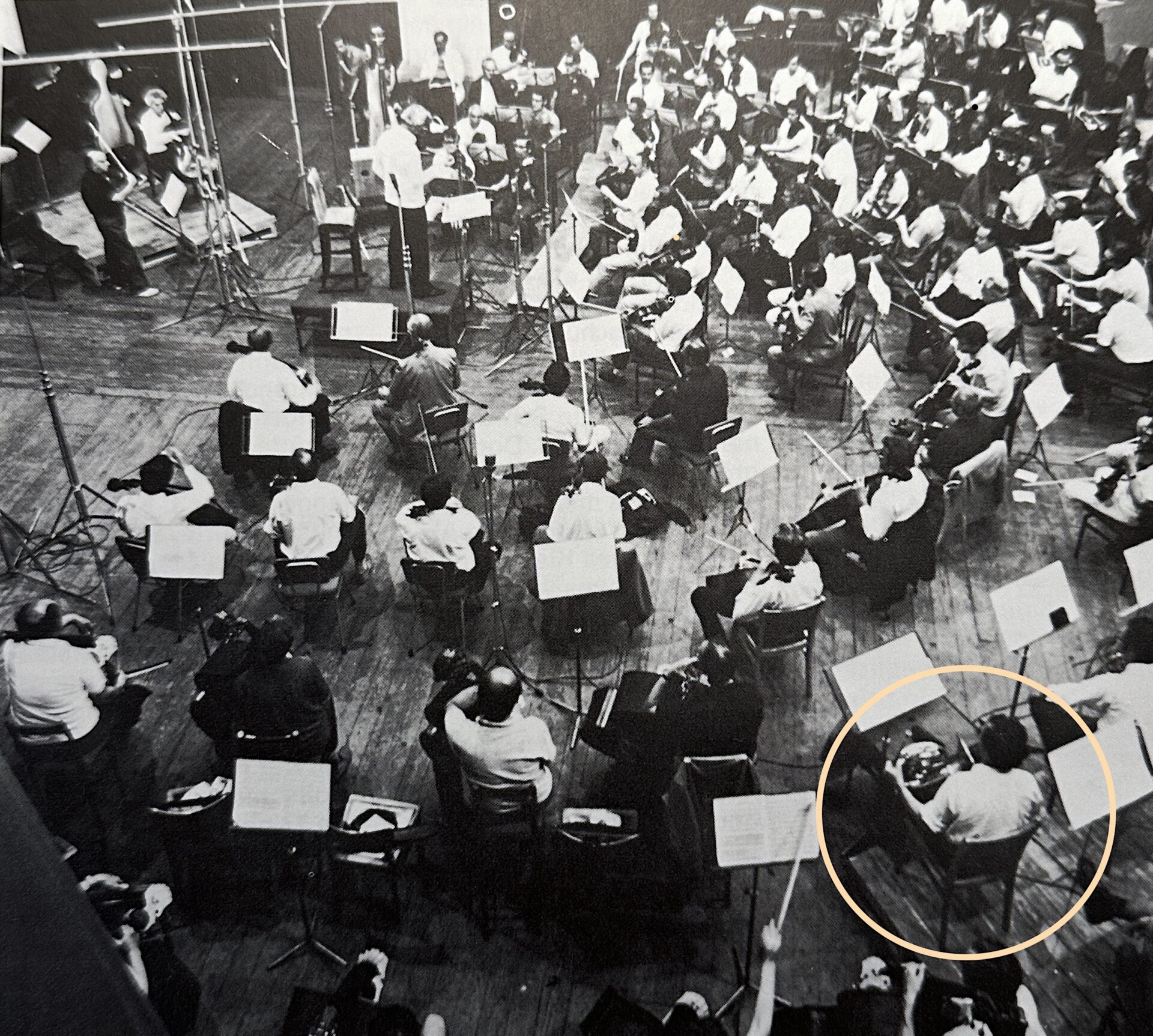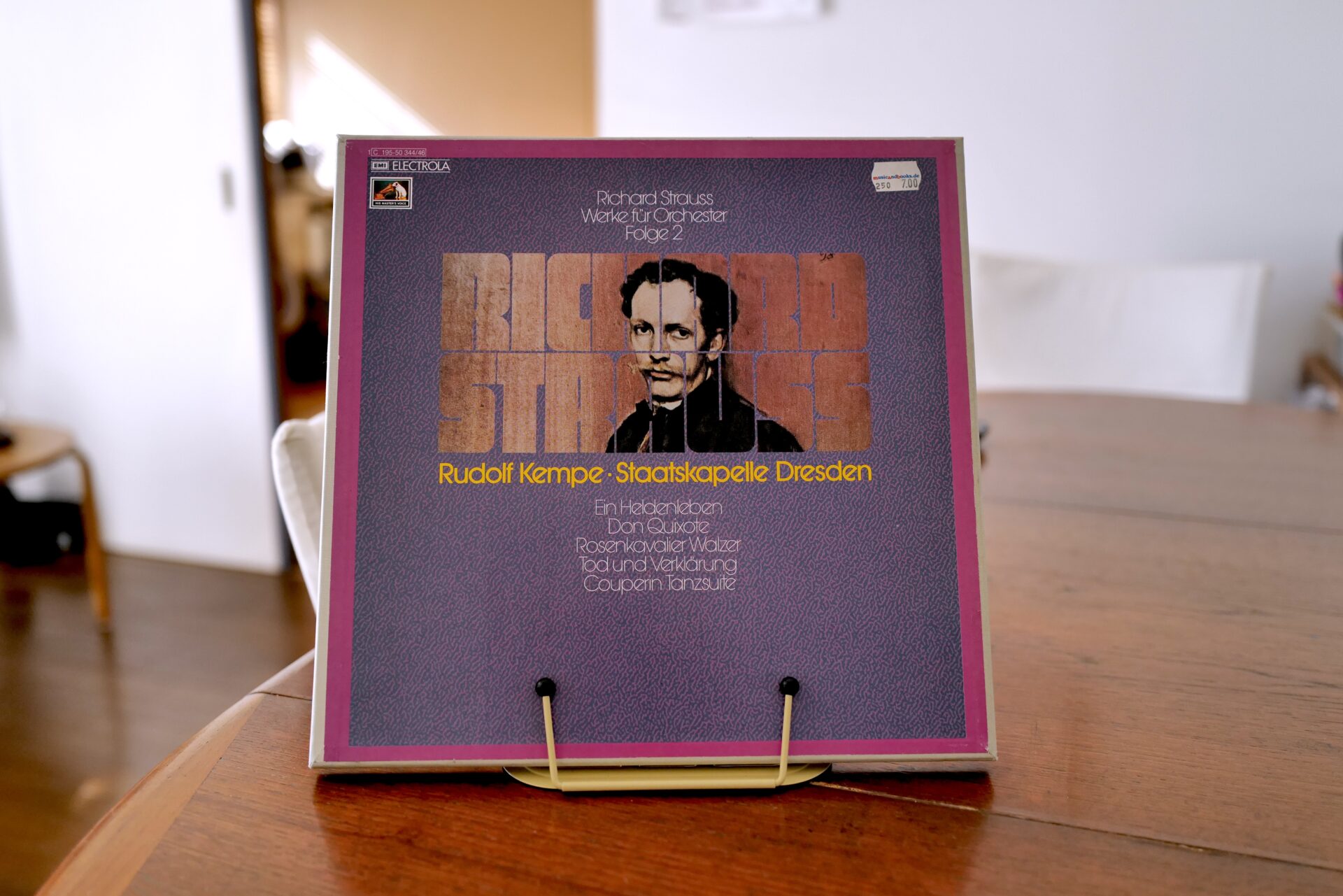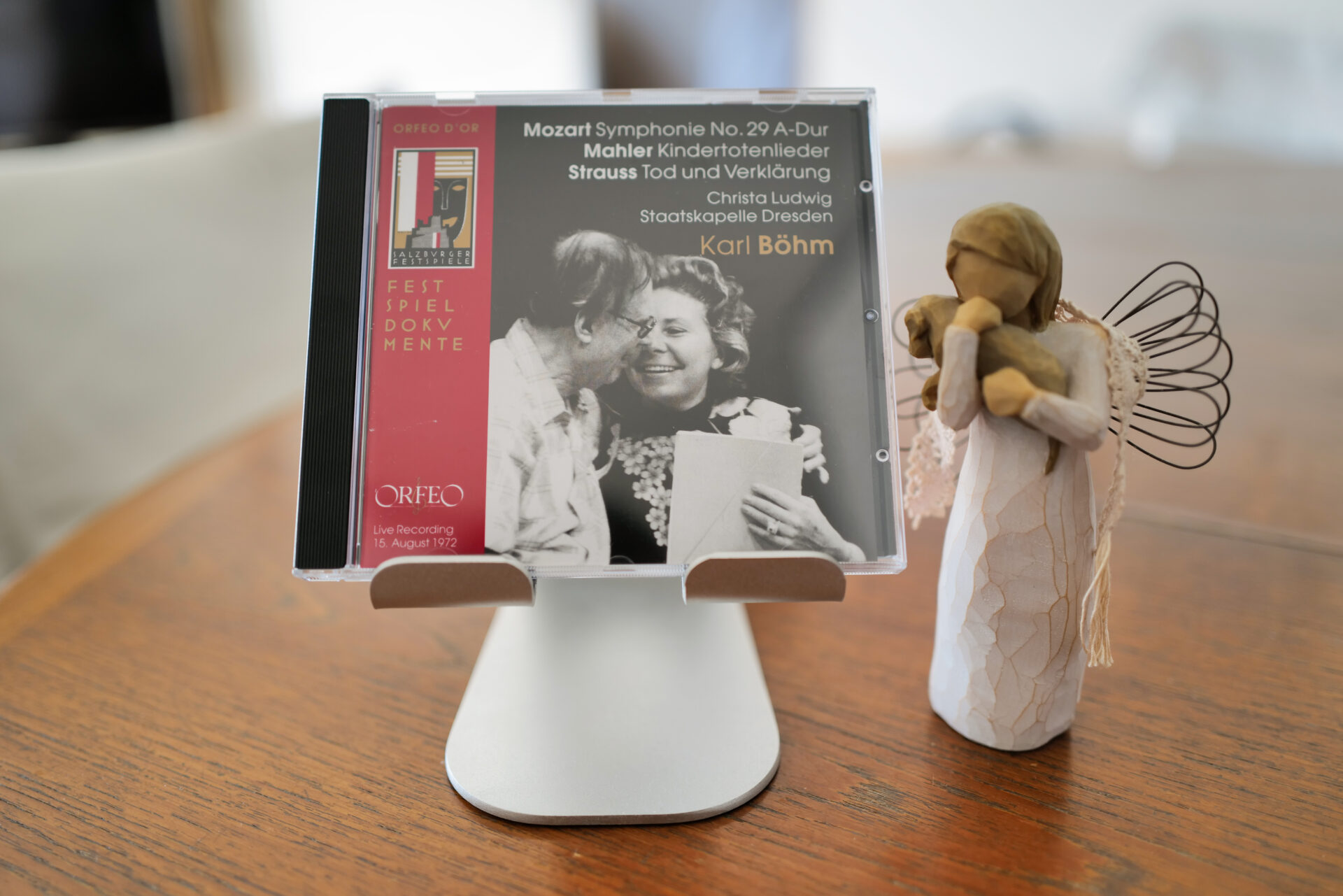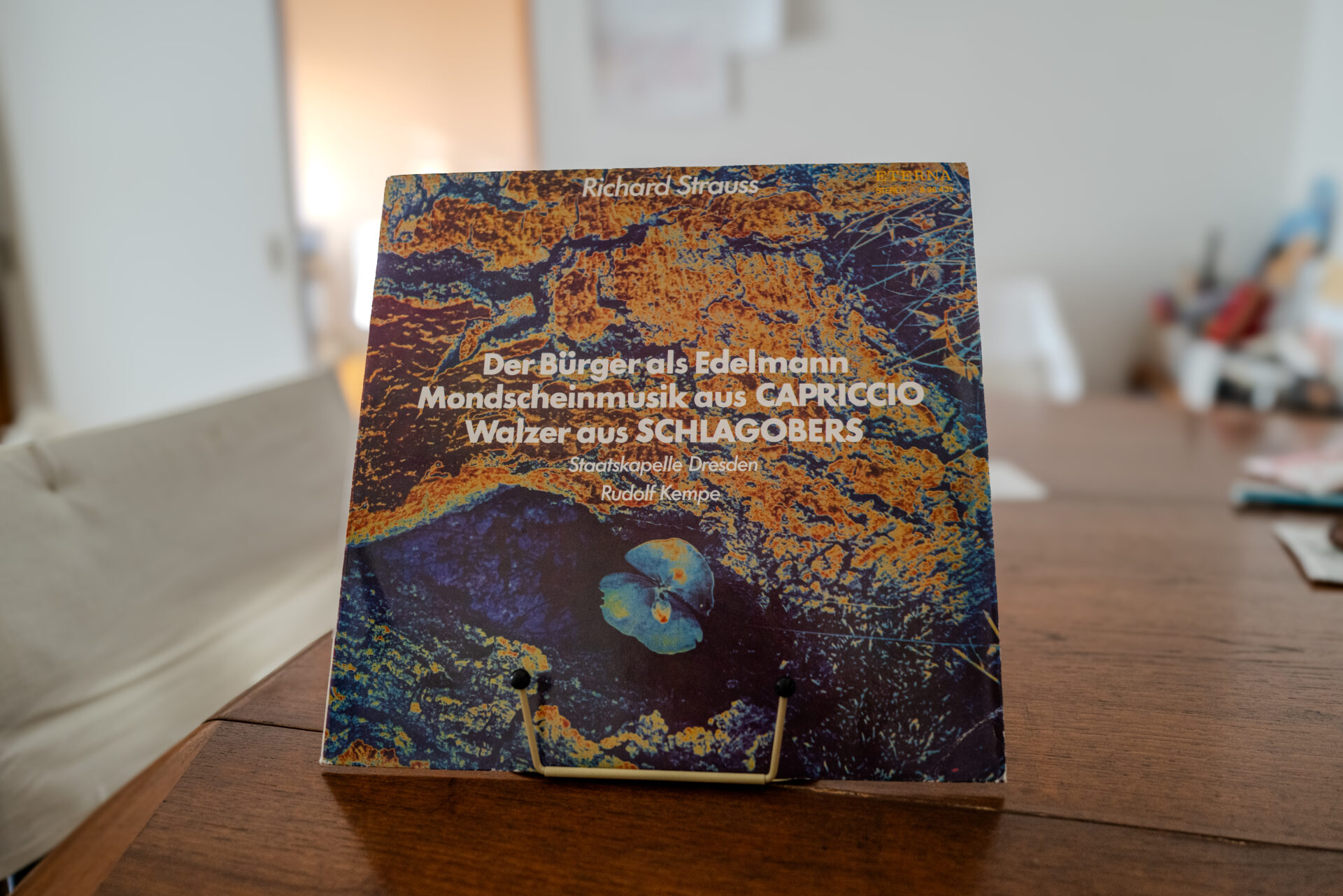Most of the recordings I have introduced so far were recorded at a place called “Lukas Church” in Dresden. Ten years ago, my Master had an honor to meet Prof.Peter Damm himself at this church. This church is no longer used for recording, but as a commemoration of the many historical recordings that were made, photos of conductors who have performed in the past are displayed on the wall to the right as you enter.
Prof.Peter Damm explained to my Master, “This is Karl Böhm. This is Jochum. Oh yeah, Seiji Ozawa came from Japan, too.” Then, after a pause, he gently narrowed his eyes and said, “He was a good friend…” and held up his hand to see a photo of “Rudolf Kempe.” Rudolf Kempe and the Dresden Staatskapelle (SKD) recorded the orchestral works of Richard Strauss from 1970 to 1975.
Today, I would like to first take up “The Life of a Hero” and think about why this series of recordings is so beautiful.


Players and Recording
Conductor: Rudolf Kempe
Orchestra: Staatskapelle Dresden
Recording Engineer:Claus Strüben
Recording date:September 5-15, 1971 (Peter Damm 34 Years old) Venue: Lukas Kirche, Dresden
“Alte Liebe rostet nicht” (「Old love never rust」- German proverb)
This is a German proverb that Rudolf Kempe quoted at the beginning of his essay about his feelings for SKD, which was included in the record. I translated and summarized below.
Born in Dresden, Kempe admired the Dresden Staatskapelle, became the music director for a short period of time, and after many years tried to nurture his “old love” again. However, his wish did not come true, and he suddenly passed away due to illness in 1976, the year after the series was completed.

Rudolf Kempe (top left) and Peter Damm (bottom right) at Lukas Church


My favorite
Der Held (Hero)
It sounds as if it said “SKD will dedicate the best performance to Kempe. At the beginning, Peter Damm’s brave horn makes you feel a lot of spirit.

Des Helden Gefährtin
The famous climax of this music. The unison roar of the horn section is very hot! Not only hot, but also beautiful!

Entsagung
Both the conductor and the orchestra played each note slowly and lovingly, as if regretting the awakening of a beautiful dream. Towards the end, the “hero” Peter Dam performs an emotional solo with his “companion” solo violin. It was a performance that felt like he was dedicating his best music to his best friend, Kempe.

For decades, East German musicians and people had no freedom to cross borders, except in a few communist countries. This cannot be compared to “I was crippled for 3 years due to the coronavirus.” Lately, I’ve been thinking that music may have been the “wings” that set them free.
SKD record excellent performances, and those recordings transcend walls and travel freely around the world, transcending time and reaching the ears of future generations. The reason Staatskapelle Dresden’s performances from this era are so beautiful and so touching may be because their thoughts are reflected in their music.




